Photo

Hey guys new post! And the concept pic WTF?! It’s so aesthetic omfg I can’t wait. Also can’t wait for Blackpink’s comeback so excited! Anyways hope you guys like this post! . . . . . #calligraphy #suga #yoongi #minyoongi #bts #washitape #hearts #pink #weeklyspread #mujiplanner https://www.instagram.com/p/Bvr9h6Lh3Q0/?utm_source=ig_tumblr_share&igshid=1gkfsi9exyzvs
12 notes
·
View notes
Photo

Yayy we now have Jiminie! He is the cutest lil baby ever omg!! I’m always bias wrecked by him ㅠㅠ Hope you guys like this spread! . . . . . #weeklyspread #mujiplanner #bts #jimin #parkjimin #babybreathbouquet #heart #star #washitape #pink https://www.instagram.com/p/BvE4fJbh03W/?utm_source=ig_tumblr_share&igshid=akvca0mzcaay
1 note
·
View note
Photo

Jin #2 and Omg belated HAPPY BIRTHDAY to the sweetest Sugaaaaaa Love you to the moon and back!!!! Hope you guys like this spread! Imma come back with more! Btw guys watch the Village Survival, the Eight. Jennie is in it and the whole cast is just sooo funny. It’s a reality show and I laughed so much! . . . . . #jin #seokjin #babybreathbouquet #weeklyspread #epiphany #2019 #calligraphy #mujiplanner #pink #heart #bts #washitape #sparkles https://www.instagram.com/p/Bu01Jd7BZrF/?utm_source=ig_tumblr_share&igshid=1t4hghzbf9m1l
#2#jin#seokjin#babybreathbouquet#weeklyspread#epiphany#2019#calligraphy#mujiplanner#pink#heart#bts#washitape#sparkles
1 note
·
View note
Photo

Yayyy we now start the BTS series!!! Kicking off we have my ult bias Jin! Hope you guys like this spread! . . . . . #jin #seokjin #bts #babybreathbouquet #weeklyspread #kpop #washitape #calligraphy #epiphany #epiphanybts https://www.instagram.com/p/Bug-EINh0Q_/?utm_source=ig_tumblr_share&igshid=1uilj913t6ttj
2 notes
·
View notes
Photo

Welp a page of beautiful Conan Gray before I start the BTS series! Love his songs so so much xx Comment if you like listening to him too! . . . . . #washitape #conangray #babybreathbouquet #calligraphy #weeklyspread #mujiplanner2019 #sunsetseason #crushculture #idletown #greekgod #generationwhy #lookalike #youtube https://www.instagram.com/p/BuRDRdoBMDh/?utm_source=ig_tumblr_share&igshid=lqtw6tzfe2w2
#washitape#conangray#babybreathbouquet#calligraphy#weeklyspread#mujiplanner2019#sunsetseason#crushculture#idletown#greekgod#generationwhy#lookalike#youtube
0 notes
Photo

Jin and Conan Gray’s birthday!!! Happy birthday boyz!! Hope you guys like this spread! . . . . . #calligraphy #jin #jinday #conangray #weeklyspreads #mujiplanner2019 #pink #washitape #happybirthday #happybirthdayjin #seokjin #bts https://www.instagram.com/p/BuHFUFoBBQm/?utm_source=ig_tumblr_share&igshid=j78u3fuwppca
#calligraphy#jin#jinday#conangray#weeklyspreads#mujiplanner2019#pink#washitape#happybirthday#happybirthdayjin#seokjin#bts
1 note
·
View note
Text


Hey guys! This is my new journal I use for 2019. Sorry for procrastinating on taking pics but I am going to start posting loads ;) Hope you guys like this!
#mujiplanner2019#planner#bts#calligraphy#washitape#weeklyspread#planning#motivation#pink#pink aesthetic#babybreath
1 note
·
View note
Text
A Stash of Tiny Study Tips
STAYING MOTIVATED
Create realistic goals: get ___ grade on next ____
Manageable let down; get back on track
Keep track of grades: focused, know where stand, no surprises
Start small
Low risk confidence builders
Take time to relax/give self rewards
Days off, breaks, rewards
All work & no play =/= living
Little organization goes a long way
Reward achievements!
Keep balance with exercise, clubs, friends
2h/d: friends and exercise
Remember that hard work pays off
Isn’t a breeze to try to get a 4.0 GPA; but it’s possible
You’re smart enough and can achieve it
90% there with these tips, 10% is just pure hard work
Only chill on weekends
Monday-Friday: school mode
Have time for some fun
If work as hard as should during week, will need weekends to blow off steam
Be self-motivated
Grades can matter, not everything, but follow through on what needs to be done
Not most important part of college but underperform? You will regret it
GPA cutoffs exist and matter to employers
College is full of distractions and opportunities
Nobody will hold hand and the work will suck but all the prouder of yourself to be
Suck it up, buckle down, get it done
If think need break, probably don’t
Turn off the little voice
Realize not alone in questioning ability
Avoid people who tend to burst bubbles no matter what
Physical triggers to stop
Incentive to get something done when know have something else during the day
Don’t have a gaping abyss of study time
Work has to get done, in the end
Books, examiners, and especially your future self isn’t going to care about your excuses for not doing the work
Take the first step
It will almost be fictional how hard you thought the task was going to be
Just keep going because you simply can’t afford NOT to do anything today, nonzero days
Leeway, don’t give your perfectionism control over your life
MUNDANE HABITS
Sleep! Think and function, mind & body
CAN sleep if keep up with coursework instead of procrastinating
Will miss out on some fun stuff
Need to stay awake in class
Figure out what need for full speed
Stay relaxed
Stay physically healthy
Diet and exercise
1 hour exercise during week
Weekends off
Traditional breakfast not necessary if value extra sleep
Systematic habits: neat, prepared
Master material
Look for real world applications
Learning is a process: be patient, don’t expect to master off the bat
Designate study area and study times
Do trial runs
Practice tests
Ask a TA to listen to your oral performance
Study groups
Don’t copy other people’s psets and solutions
BEFORE SEMESTER
Spiral bound notebook, can color code with folders/etc if need be
Lecture notes: front to back
Reading notes: back to front (if fall behind on)
Seminar notes: mixed in with lecture notes, different pen color/labeled
Outline format
Bullet points for everything
Same NB for one set of class notes, separate notebooks for all classes
5-subject notebook
Midterm and exam material in it
Mesh sources, study guide
All study material from week/month in one place
Pick the right major
Indulge in favorite hobby feeling
Pick professors & classes wisely
Take a small class
Pick classes that interest you so studying doesn’t feel torturous
Want to learn
GRADES SPECIFIC
Prioritize class by how can affect GPA
More credits: more weight
Work enough to get an A in your easy classes: take something good at
Don’t settle, don’t slack off, don’t put in minimal effort to get that B/C. Just put in a tiny bit more effort to ensure A
Will have harder classes and need to counteract
Take electives can ace
Anything but an A in an elective is kinda mean and an unnecessary hit for your GPA
FIRST DAY/WEEK/HALF OF CLASSES
Get to know teaching style: focus most on, lecture/notes
Pick and follow a specific note taking format
Outline
Date each entry
Capture everything on board
Decide productivity system
Google Cal
Todoist
Agenda: remind meetings, class schedule, important dates/midterms/quizzes/tests, no homework
Always wanted to be prepared
Rarely last minute
Have plan, stay focused
Homework notebook
Good redundancy
Study syllabus
Know it thoroughly
Plot all due dates after class
Penalize if fail to abide by
Study the hardest for the first exam
Seems counterintuitive
Hardest/most important test
Pay attention to content and formatLess pressure: just need ___ on final to keep my A
Easy to start high and keep high
Go into crunch mode at the beginning
End softly
Get plenty of sleep, exercise, and good food in the finals days before the exam
DURING SEMESTER: PEOPLE
Get to know professors: go to office hours, care about grades/course/them
Easier ask for help, rec letter
Get to know interests and what they think is important
Figure out their research interests, 60% of their job is research
Learning is dynamic
Discussion helps
Get feedback early when not sure what doing
Take comments constructively
Consistent class participation: ask questions, give answers, comment when appropriate
Understand material
Find a study buddy in each class: don’t have to study with
Somebody can compare notes with, safety net
Pick somebody who attends, participates, and take notes regularly
Make some friends
Participate as fully as can in group activities
Be involved
Learn – not be taught
Be punctual
Good impression, on human professors
DON’T BE LATE
Skipping class =/= option: It’s “cool” to get attendance award
Make all the classes: it’s hard to feel confident when missing key pieces
Get full scope of class, everything will make a lot more sense and save a lot of time in long run
Mandatory class: higher graduating cumulative GPA
Go to class when no one else does/want to show up, reward
Get to know professor, what’s on test, notice, r/s build, material not in reading
Unless optional and super confusing professor
Sit in one of the first rows
Don’t fall asleep
Fake interest if you have to
Tutors
DURING SEMESTER: THINGS TO DO
Take notes! Provided is bare minimum, accessed by students who aren’t attending lecture
Based on lecture and what read –> test; it’ll be worth it
Write it down
By hand
Bored? Doodle instead of going online
Read all assigned–even if need to skim
Seems cumbersome and maybe impossible
Figure out what’s important
Look at the logical progression of the argument/what’s important/what trying to prove
Understand everything that you do read–even if don’t read everything
PIck 2 examples from text per topic
Complete course material on time
DO NOT WAIT UNTIL DAY BEFORE IT IS DUE
Begin as soon as possible
Sometimes it’s just straight up impossible
Have it look attractive
Library doesn’t just mean = study
Social media in the library is still social media
Confusion is terrible
Read other textbooks, review course material @ another uni/by another professor, google the shit out of it
Review
Do not wait, do throughout semester
Exam prep
Ask for model papers, look at style & structure, thesis, how cite
Get old tests
Look at type of questions (detail level and structure)
Can solve old exams cold
If give out paper exams in class: probs won’t repeat questions, focus more on concepts but still learn the questions
Have class notes and psets down cold
Do all the practice problems
Read through notes a few times; rewrite into a revision notebook
Highlight major topics and subtopics
Different highlighter for vocab terms
Overall picture, go from concept to detail
Look at overall context and how specific idea fit into whole course
Ideas, don’t memorize all your notes
Better understand = more able to use and manipulate info and remember it. Understand = manipulation.
Charts, diagrams, graphs
Lists
Practice drawing labeled structures
Flash cards for memorization
Every school requires some degree of grunt memorization
Say it aloud, write it down
Get friends to quiz you
Self-test: severely challenge self, have a running collection of exam questions
Explain difficult concepts to your friends; force yourself to articulate the concept
Never pull an all-nighter
Do not spend every hour studying up to the exam
Eat, shower, sleep
Don’t wait until night before exam to study
Prep takes time even if reviewed throughout semester
Ask about format–don’t ask the professor to change it for you
Law of College: it will be on the exam if you don’t understand it
Ask professor, internet, textbooks
Night before exam
Jot what want to remember/have fresh
Read through in morning/before exam
Physical prep
Sleep, have test materials
Day of exam
Don’t cram every single spare minute
Go to bathroom before exam
Never miss an exam/lie to get more time
You won’t be any more ready 2-3 days after when supposed to have taken it
Slay exam. Get A.
WEEKLY
Friday morning: go through each syllabus, write down in HW notebook
All hw during weekend; study/reading assignments during week
Save everything
Divide big tasks into small pieces to help propel self
Standard study schedule: block off lectures, labs, regular commitments
Note the weeks that have assignments and tests that will require extra studying
Don’t oscillate too heavily every day with study times (i.e. don’t study 2-3 hours for weeks and then 10-12 hour days right before an exam)
Eat and sleep to make more extended work periods liveable and enjoyable
DAILY
Set an amount of time would like to study every day
Try to study most days
Avoid vague/zoned out studying –> waste of time
Do a little bit daily but don’t let studying be your whole day
Review notes: 30mins/day, each class from that day
Look at important ideas/vocab
Prioritize new vocab because language is most fundamental and important tool in any subject
Circle abbreviations and make yourself a key somewhere so you don’t forget what the hell that abbreviations meant
Check spelling
Rewrite/reorganize notes if necessary
Format of ideas is just as important as the concepts themselves, esp. when it comes time for exam review
This helps you retain the material so you’ll be ahead next time you walk into class
Chance to ID any knowledge gaps that you can ask about for next class
Keep up with reading
Skim text before lecture or at least main topic sentences
Jot down anything don’t understand; if lecture doesn’t clarify, ask the professor
After lecture: skim again, outline chapter, make vocab flashcards
Highlight similar class and lecture notes
will definitely be tested on
Review and make study questions
Study
Disconnect from anything irrelevant to study material: help focus and your GPA
Don’t limit studying to the night
Study whenever, wherever between classes
Variety helps focus and motivation
Especially if tired at night and can’t transition between subjects
Try to study for a specific subject right before/after the class
28K notes
·
View notes
Photo
The sweetest mochi : )

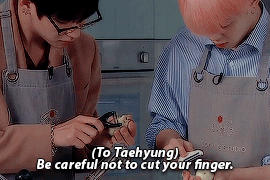
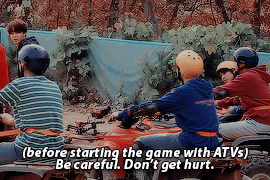





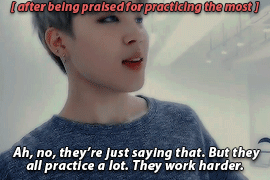

happy birthday jimin countdown d-5 → nothing but love and care for his members ♡ ♡ ♡
+ bonus
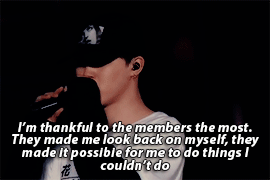
4K notes
·
View notes
Text
PSA: Being nice to others doesn’t cost you a penny
That girl in your class you don’t really like? Telling her “good morning” could possibly make her morning slightly better.
That guy you’d rather slap in the face than a borrow a pencil at? He isn’t gonna fucking eat it, he’ll use it and most probably not give it back, though you could always ask it back nicely and earn a notch on his mental list of friendly people.
That other person that doesn’t seem to socialize with anyone in class? It’s alright if you make small talk with them, they’ll probably appreciate it, even if they don’t show it to you directly.
Opening a door and someone else walks in behind you? Holding the door for a moment longer isn’t gonna cost you shit.
Your mood swings don’t justify you being a total jerk.
There’s more examples that probably have more meaning, but I’m gonna keep it short and simple. Being nice to others isn’t a sacrifice. It’s a deed of humanity. Don’t be an ass this term. Pass the word on.
187 notes
·
View notes
Text
push yourself to get up before the rest of the world - start with 7am, then 6am, then 5:30am. go to the nearest hill with a big coat and a scarf and watch the sun rise.
push yourself to fall asleep earlier - start with 11pm, then 10pm, then 9pm. wake up in the morning feeling re-energized and comfortable.
get into the habit of cooking yourself a beautiful breakfast. fry tomatoes and mushrooms in real butter and garlic, fry an egg, slice up a fresh avocado and squirt way too much lemon on it. sit and eat it and do nothing else.
stretch. start by reaching for the sky as hard as you can, then trying to touch your toes. roll your head. stretch your fingers. stretch everything.
buy a 1L water bottle. start with pushing yourself to drink the whole thing in a day, then try drinking it twice.
buy a beautiful diary and a beautiful black pen. write down everything you do, including dinner dates, appointments, assignments, coffees, what you need to do that day. no detail is too small.
strip your bed of your sheets and empty your underwear draw into the washing machine. put a massive scoop of scented fabric softener in there and wash. make your bed in full.
organise your room. fold all your clothes (and bag what you don’t want), clean your mirror, your laptop, vacuum the floor. light a beautiful candle.
have a luxurious shower with your favourite music playing. wash your hair, scrub your body, brush your teeth. lather your whole body in moisturiser, get familiar with the part between your toes, your inner thighs, the back of your neck.
push yourself to go for a walk. take your headphones, go to the beach and walk. smile at strangers walking the other way and be surprised how many smile back. bring your dog and observe the dog’s behaviour. realise you can learn from your dog.
message old friends with personal jokes. reminisce. suggest a catch up soon, even if you don’t follow through. push yourself to follow through.
think long and hard about what interests you. crime? sex? boarding school? long-forgotten romance etiquette? find a book about it and read it. there is a book about literally everything.
become the person you would ideally fall in love with. let cars merge into your lane when driving. pay double for parking tickets and leave a second one in the machine. stick your tongue out at babies. compliment people on their cute clothes. challenge yourself to not ridicule anyone for a whole day. then two. then a week. walk with a straight posture. look people in the eye. ask people about their story. talk to acquaintances so they become friends.
lie in the sunshine. daydream about the life you would lead if failure wasn’t a thing. open your eyes. take small steps to make it happen for you.
418K notes
·
View notes
Photo
Our hardworking little Kookie😭
💪🏻Fighting!






thank you, yoongi [ vid. | trans. ]
10K notes
·
View notes
Photo

Study a lot but feel like you’re getting nowhere? You could be making some of these common mistakes…
Only re-reading material
Studying =/= re-reading! When you re-read your textbooks or notes you might feel like you remember everything, when actually you might just recognize the material. Instead of trying to memorize every line, test yourself on the things you actually need to know. You can make your own tests using the summaries at the end of each topic, or do any quizzes provided in your textbook. This should help you figure out which sections you need to review in more detail.
Not having goals
What grade do you want in this upcoming test/assignment/class? If you don’t have a goal you might be tempted to hand in work that is causing your grade to suffer. Write down your goals, these can be very motivating when you don’t feel like studying.
Want an A? Ask yourself when you’ve completed some work if it looks like something worthy of an A grade. If not, go back and fix it up! You will work that little bit harder if you’re actively striving for something.
It is important to make sure your goals are achievable though, and that you will have enough time to do regular life things….. like shower and eat proper meals. When you do meet a goal, make sure to take a break and reward yourself.
Cramming
Most of us are guilty of this and regret it every time, but never change our habits. Have a big exam coming up? Write down everything you need to do to get the grade you want on the exam. Now break these large tasks down into smaller sub-tasks that you can complete in a short amount of time. Plan it all out on a sheet of paper/digital system that you look at often, including the date & time that you will complete each task. Be diligent in sticking to these times!
If you are a major procrastinator, sit down with the intention to work on a task for just five minutes. Yes, five. The act of just beginning the work gives you a head start and you will probably want to work on it for longer once you’ve made the effort to sit down to start. Cross off tasks when you’ve completed them and reward yourself for progress.
Studying the wrong material
I can tell you I definitely suffer from this. I am a lover of order and perfection, so before an exam or text I always wanted to study topics from the very beginning of the class to the end, in order. As a consequence I would waste so much time studying the easy topics from the first few weeks of class, and neglect all the difficult material at the end. Don’t do this!! Start from the difficult material at the end, because it is most likely the material you remember AND it’s more difficult and therefore worthy of being studied. Once you’ve studied this material, work your way backwards to the beginning of the class.
Another common one here is while using flashcards. You might have some flashcards for each topic that you study every day. I’m guessing this pack of flashcards also has some easy cards and hard ones in there too? Well instead of continuously studying the entire pack of flashcards you can sort them into easy piles and hard piles. All you need to do is study the hard piles more regularly and the easy piles less regularly. Then you avoid wasting time on things you probably already know.
Studying for hours on end
“I learn effectively by studying for 6 hours straight” said no one ever. Actually, you’re probably wasting time by doing study marathons. Give your brain a rest and time to think about something other than studying through something like the pomodoro technique, where you study for 25 minutes and break for 5 (one pomodoro) and then after four pomodoros take a longer 30 minute break.
956 notes
·
View notes
Text
I am either biology or chemistry💫What are you guys?
types of people - science
chemistry - tea drinker, colorful socks, crafty, small smiles, long eyelashes, messy, diverse music taste
physics - lack of sleep, lip biting, untied shoelaces, sci-fi movies, b&w, electric cars, skinny jeans
biology - home filled with plants, activism, loves cooking, hard worker, plays the guitar, social
astronomy - wide eyes, vintage clothes, old records, introverted, night owl, biting your nails, child at heart
mathematics - minimalism, bullet journaling, cinnamon buns, cacti on the windowsill, nerdy
oceanography - oversized clothes, doodling in sketchbooks, a bit detached, fall person, swimmer
9K notes
·
View notes
Text
How to Deal with Study Burnout

As students in this day and age, it’s quite common for us to juggle rigorous academic responsibilities and overwhelming extracurricular activities. As a result, we might feel burnt out. But what exactly is burnout?
Burnout is when you feel physically and mentally exhausted as a result of constantly lacking the energy required to fulfill the demands of your studying.
Burnout can be broken down into three parts:
Exhaustion is what causes you to feel tired all the time and unable to concentrate. You could also get sick or have trouble sleeping.
Cynicism or depersonalization is when you feel disconnected from those around you, e.g. your friends and family.
Inefficacy is a decrease in productivity, efficiency, or quality of your work.
How do you know if you have burnout?
Symptoms may vary, but they include:
Being unable to absorb new information
Intellectual exhaustion
Decreasing academic performance and productivity
Feeling like you need to prove yourself
Making yourself work even more, even though you’re exhausted or being unwilling to study further
Neglecting your needs
Long term fatigue
Showing disinterest in things you normally enjoy, e.g. hobbies or friends
Denying that something’s wrong with you (may manifest in the form of aggression)
Avoiding social interaction
Feeling empty and depressed
What can I do to fix it?
Here are some short term solutions for dealing with burnout.

1. Take a power nap
Power naps are life changing. They help you recharge your energy and get you ready to start working again. They also improve learning, memory, creativity, alertness, and mood. I would recommend napping for 30 minutes at most, because anything more will lead to a longer sleep session.
Optional: drink coffee before your nap - something that takes a short while to consume like a shot of espresso - so that you’ll feel alert and revitalized afterwards!
2. Take a shower
A cold one will wake you up, but a warm one will calm you down. I suggest starting with warm water, then ending with cold water.
3. Exercise
Whether it’s playing soccer or doing yoga, the important thing is to get moving! Exercise releases endorphins or happy hormones that help you combat stress.
4. Run a quick errand
This will help take your mind off things while also getting something done! You’ll also end up walking, which is technically a form of exercise.
5. Call or visit a friend
Sometimes what we’re lacking is social interaction, and hanging out with a friend definitely helps. Whether it’s providing you with a distraction or giving emotional support, your friends are always there to help you. Plus, science has shown that being with friends reduces your cortisol (stress hormone) levels.
6. Eat a snack
Preferably a healthy one. Eat something with proteins, vitamins, and fibers to boost your mood. Here’s a list of mood boosting foods.
7. Surf the web
This requires A TON of discipline, but it’s definitely a game changer. Surfing the web is one of the most relaxing things you could do. I personally look for a good laugh during my study breaks, so I’d watch a comedy or scroll through memes to get those happy hormones up and running.
8. Do an activity you find interesting, e.g. a hobby
We all need happiness in our lives, and our hobbies are perhaps the best way to find that joy. You could sit down with a page turning adventure, or go outside and shoot hoops, or listen to a podcast, or even bullet journal, as long as you’re having a good time.
9. Listen to music
Music is one of the ways we gain energy, so I always make time for it during the day. However, you should choose the right music, because not all the music you love is going to make you feel energized. For me, it’s pop punk with hard hitting beats, thundering guitars, and really upbeat, enthusiastic vocals. Some of you might be energized by mellow music with dreamy vocals that make you feel like you’re floating in the clouds. If you choose the wrong music, you might just end up feeling sluggish and drained.
10. Get some fresh air
Your brain needs 20% of the oxygen in your body. Fresh air brings more oxygen to your brain so that you can think more clearly, feel less tired, and concentrate more easily.
How do I make sure I don’t get it in the future?
Avoiding study burnout in the long term has a lot to do with our study habits - as well as our daily habits. We need to make sure that our bodies and minds receive the things they need, and that we aren’t overworking them.
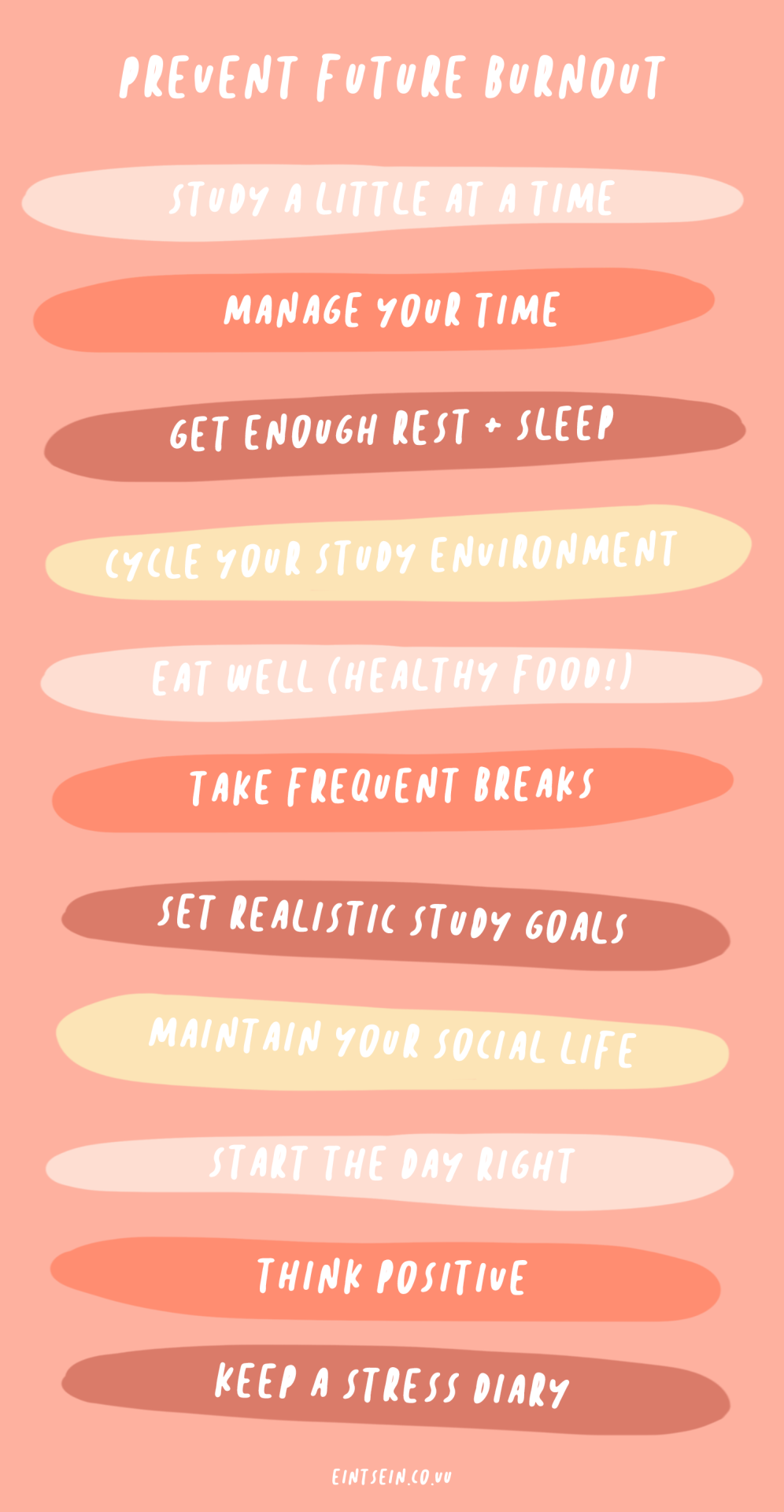
1. Study a little at a time
Break up your notes into smaller, more easily digestible pieces and learn a little at a time. This way, you’re not overwhelming your brain, and you have time to let that new knowledge settle in.
2. Time management
Having a good study schedule is crucial in preventing burnout. You don’t want to force yourself to work at your slow hours. Aside from that, you definitely shouldn’t leave things until the last minute, and sticking to a schdule will help you pace yourself. Here’s a post I wrote on How to Make an Efficient Revision Schedule and How to Beat Procrastination.
3. Get enough rest
I cannot stress enough that sleep is so important for you. It improves your cognitive functioning and also enhances your mood, making it less likely that you’ll get burnt out. Make sure to take power naps, too, if you feel like you need them.
You also really shouldn’t pull all-nighters. Sleep is also involved in cementing memories in your brain, so if you study a little before you sleep, you’re bound to remember more than if you studied a chapter during an all nighter.
Having trouble sleeping? Here’s a post I made about my night routine and how to get better sleep.
4. Cycle your study environments
Your body and mind are bound to get tired from being in the same location for prolonged periods of time. The best way to fix that is to study in different places: at your desk, your backyard, the dining table, a cafe, a friend’s house, the library, etc.You should find a frequency that works for you. I like to switch it up every 2-3 days; some people change locations every week.
5. Eat well
As I’ve mentioned before, healthy foods with protein, vitamins, and fiber greatly improve your mood and your physical health. Proper nutrition will give your brain the power it needs to push through. Also make sure not to skip meals; honestly you’ll just end up feeling terrible afterwards.
6. Take frequent breaks
Let’s face it, we’re human, we’re bound to get tired from studying for a long time. Taking breaks enables our brains to digest the information we just learned in a pace that works for it. Breaks also help us focus on something other than studying, so that when we do get back to it, we’ll be ready to digest even more information.
7. Set realistic study goals
You’re gonna memorize all 500 pages of your biology textbook in one day? Good luck with that. Some of you might be compulsive studiers, but this kind of habit isn’t very good for your brain or your physical health. Studies have shown that excess studying can lead to lower productivity, fatigue, and - you guessed it - burnout. In the end, this will result in lower academic performance, perhaps even in the long run. So instead of trying to study so much in one sitting or one day, break up your material into chunks.
8. Maintain your social life
Wherever you lie on the introvert-extrovert spectrum, everyone needs social interaction once in a while. It keeps you sane and healthy. Go out with your friends, have a sleepover, or maybe even a study date.
9. Start the day right
What we do in the morning can significantly affect our mood for the rest of the day. Sometimes we don’t even feel like getting up in the morning, or doing anything that day. One thing you should do is create a morning routine you enjoy to jumpstart your day. Here are 8 Morning Habits for Productivity.
10. Think positive
When we’re feeling burnt out, it’s hard to not think negatively about everything. In reality, that just makes our condition worse. So think positively! Start small, like congratulating yourself for getting out of bed today, and then work your way up to bigger accomplishments, like finishing 2 chapters of your textbook.
11. Keep a stress diary
This is kind of a new concept for me, but it’s really great. How it works is that each day, you would write down all the things that made you stressed and how they made you stressed. This will help you identify the things you’re doing that’s causing your burnout, e.g.
Too long study hours? take regular breaks
Too much time in the same place? cycle your study environment
Not eating properly? set aside time to eat healthy meals at least 2 times a day
Not doing the things you love? schedule in time for that, e.g. during your long breaks
Not getting enough human interaction? make a study group
Too much negative thinking? adopt a positive mindset (you can always start small)
Not getting enough sleep? fix your sleep schedule
And that’s all I have for you guys this time. Hope these tips will help you manage your stress and study burnout whenever you have them. And if you have any questions, don’t hesitate to drop an ask!
P.S. if any of you want to see the images in this post in better quality, click here (link to google drive)
29K notes
·
View notes
Text
back to school
i know, i know, i’m a little bit early. it’s all good, i have anxiety, i plan ahead constantly. i figured i’d share some of my plans to prepare myself for heading back to school.
1. fix your sleep schedule
for school i wake up at 6:30, in the summer i wake up at 12. and recently i decided to fuck that up even more by pulling an all-nighter and just, in general, screwing up my sleep schedule. i’ll need about a month to fix all this damage, but in general, you should start reacquainting yourself with your school schedule about two weeks before you have to head back.
2. figure out your note keeping system
i’m switching things up this year, and i won’t be using the binder system i’ve had all throughout high school. it’s simply to heavy for my walk to and from school. instead, i’ll be using a filing folder, and keeping loose leaf paper, as well as the week’s lessons in there, and once the week is over, i’ll transfer my notes to the binder system at home, which should limit the weight i carry. also, this’ll force me to have better organization, and hopefully make weekly review easier. just as a rule of thumb, refreshing your note keeping system is something you should do annually, at the start of a new year or even before a new semester; you know what’s been working and what hasn’t been.
3. gather breakfast ideas
i have about ten minutes scheduled in my morning routine during the school year for breakfast. and about five of those minutes are spent figuring out what to eat. i want to gather simple breakfast ideas that i can test out now, so i don’t waste time deciding what to eat. this just, in general, makes mornings less of a hassle and can help make sure you’re getting a good start to the day.
4. take stock of your supplies
i need a lunchbag and highlighters, my previous ones are no longer able to function, so i need to replace them. i don’t, however, need new pencils, i have plenty. doing an inventory check can really help prevent buying duplicates of something you thought you didn’t have.
5. create achievable goals
this year is my final year of high school, and then i’m off to university, most of my goals centre around applications and just graduating. but there are other things i know i need to do. embracing study habits for one. i’m hoping to do so by staying in the library after school instead of walking home right away because i know i can’t get work done as effectively at home. i’ll also be doing a review for exams all throughout the year, instead of the day before, by creating flashcards and mindmaps for each days lesson. set a general goal, then add the steps you’ll need to take to achieve it.
6. check your courses
i’m dropping out of physics because i don’t need to be taking it and it will give me a spare instead of a full course load. i need to talk to my guidance counsellor before school starts because of it. as well, i like to make sure i’m in the correct classes and that my schedule is as balanced as possible. some schools may not allow this for regular students, mine does. make sure you’re taking what you need to take and what will allow you to succeed.
7. put dates in your planner
my school offers a tentative list of events going on through the year, with set exam and break times. i like to keep track of these, and setting them in my planner makes it easier to see how my year will play out. if your school doesn’t offer this, check out past years scheduling so that you have a general feel for how your year will go.
these are just some of the things i’m doing to ensure this year goes smoothly for me. let me know what y’all are doing too!
3K notes
·
View notes
Text
40 Study Tips & Tricks
I thought to write down the “script” to one of my most viewed videos, with 40 study tips & tricks. It’s easier to read them and pass on the word!
Organization Tips:
1. Incorporate homework and classes in you daily planner – that will give you an overall glimpse of how your week will be about and how much time you need to spend in your studying sessions!
2. Color coordinate classes – be it notes, your planner, your textbooks or binders, pick a unique color for each class and work around the hues of that color to get more organized!
3. Make your own syllabus – if your professor doesn’t provide a syllabus for your class, try to make one before the school year working around your given textbooks or other given material.
4. Make study guides – make a study guide from your syllabus and draw before each topic two boxes: one for a midtest and one for the final test. When you have one of these tests, check the boxes when you’ve finished studying the chapter so you won’t miss anything!
5. Reference your material throughout – most of the times, we students work with in-class notes, textbooks and a syllabus. Since we get small bits of information here and there it’s important to reference every page throughout all your material so you can quickly access your information without having to flip endlessly through pages!
6. Keep a dashboard nearby – Whenever you use a notebook or a binder, make a dashboard on the first page with post it notes so you can quickly scribble any questions, homework or page numbers. When you get home, you just need to open your dashboard and attend those notes.
7. Print any tests, exercises and exams you can find – keep those in the end of your binder. These are perfect to practice before exams and tests because they really reflect what you will be tested about. Set an alarm clock for the deadline and start working on those!
8. Condense – organization disappears when you have too many of everything. Working with more than one planner in your life will make everything chaotic. If you think you need a second planner because you don’t have enough space to write in the first one, it’s because you don’t have available time as well. Don’t fool yourself and set achievable goals!
9. Customize your textbooks – most of the times, textbooks are formal books where information is hard to come by. Make your own tabs and write every chapter on them so they stick out – flag any charts, tables or graphics. Everything needs to be incredibly accessible!
10 Print a special planning sheet before finals: Organizing your studying by chapters and/or topics before finals is tremendously important since it lets you organize the amount of time you dedicate to each subject,
Study Sessions and Time Management
11. Save at least one afternoon or one morning a week for intensive studying. These is your “life-saver” – when you get so full of homework and projects that you can’t incorporate them into your daily academic routine, one free afternoon to organize your school life will really come in handy! Make an appointment with yourself!
12. Prepare in advance – although most professors may not ask you to prepare a class in advance, if you have the means to, go ahead. Grab a sheet and make a summary of the chapter your class will be about. Write the major topics and key information and take that guide to class. When your professor repeats previously studied information, you will be able to understand everything much better!
13. Never leave something behind – Even if you have a more light class, where professors don’t request homework or any side projects, don’t let that fool you! Be disciplined and be your own professors! Make your own projects and learn everything you can so you can nail those finals when they arrive.
14. Write your questions – most of the time, in a heavy study session, we come up with tons of questions and sometimes we just leave them behind. Write them down in your dashboard or a small notebook and ask your professors (personally or via e-mail). You can also ask your schoolmates in a facebook group created for that purpose!
15. Set an alarm clock and reward yourself – even if you study during an entire afternoon your studying will be pointless if you don’t take regular breaks. Set an alarm clock for one hour/one hour and a half and then take a 15 minute break. Never study for more than 2 hours straight! Even if you don’t notice, you’ll get less and less focused.
16. . Make a list – before each study session I like to grab my notepad and write down everything that I need to do before my session ends: the chapters I need to read, the pages I need to go through and the homework I need to complete. Sometimes I even write theses lists when I’m in college so I’ll have more determination to complete those tasks once I get home.
17 Work on the least interesting thing first. There are always classes or projects that we like the least – and those are the ones that we need to tackle first. You will start your studying session concentrated, which will let you go through the worst tasks faster.
18 Print, print, print. try to print everything you can and never study from your computer. Having your PDF files printed at hand will let you concentrate better, highlight and write some notes in the margins. You can take these everywhere with you and even turn them into small guides for future classes!
19. If you finish ahead, don’t quit. Perhaps the time you’ve saved for your study session has come to an end way before you have planned. That doesn’t mean you should stop right now – Take that time to review what you’ve learned so far or prepare other classes ahead of time!
20. Study in an organized space – make your own studying corner – bring everything you will need, from textbooks, binders and notebooks, to a cup of coffee and your computer. Keep them neatily organized on your desk so everything is at hand and on sight. Put on some soft background music (links down below) and adjust the lightning.
In class notes
21. If your professor provides PowerPoint slides before each class, print them (six or four per page) and bring them to class. Write in the margins and more throughout information in the back so it’s all condensed and tight. This is where you’ll take your notes. If you prefer to write on lined paper, think about copying some ruled paper to the back of your printed slides.
22. If your professor asks you to prepare your class in advance, try to make a small guide for each class. Open the comments column in MSWord and print the pages with that column. When you go to class, incorporate the in-class notes in that column, next to the relevant information so everything is nice and condensed.
23 If you are in a information-heavy class, try to adopt the Cornell method, which is the best, in my opinion, when you need to be a fast writer. There’s a video right here on how to use this method.
24. If you are in a bits-and-pieces class, which is that kind of class where the professor just gives a few key points and then gives practical examples or makes you work in group, try to adopt the box method – you can draw these boxes yourself or make them with post it notes – these are way more visual and perfect to memorize information.
25. Write in-class flashcards – if you don’t have flashcards around, make tiny flashcards on the top of your notes, where you cover the definitions you’ve written with the name of the definition. Each time you open your notes, try to remember the hidden definition. Automatic studying, every time!
26. Participate in class – nothing better than to be actively involved in your class discussion. For most of us, shy creatures, participating can be dreadful – but once you get out of your box, you’ll see how participating really makes you understand the subject!
27. If you have any questions during class, raise your hand and ask them. If your professor doesn’t like being interrupted, write them down and approach them in the end of the class. Sometimes, the little things we don’t understand are exactly the ones that come up on the final exam!
28. Ask for examples. Examples are probably the thing that makes your brain connect the information faster. If your professor isn’t keen on providing examples, suggest your own and see if your answer comes up right. Sometimes, examples are the thing that really makes us understand our material and our definitions, since they transform formal information into relatable events.
29. Sit at the front. It sounds too straightforward but sitting at the front really makes wonders. You won’t get distracted by what you classmates are doing, you will focus on the professor, who is right in front of you and you will resist the temptation of going to Facebook and Instagram during a boring presentation.
30. Write a brief summary at the end of the class. During those five minutes where everyone is dismissed and leaving the room, write a brief summary of that classes’ key points in the back of a page – this is fundamental in the Cornell method but can be used in any other method as well.
Finals Guide
31 Skim through your material two times: at first, you should start by studying your material starting from the end. The last lessons will be fresh in your memory and it’s very important to reinforce your knowledge on these while you can. In the second reading, you should start from the beginning, as usual. It’s important to make these two readings so you can go through the information in a much more flexible way.
32. Make a mindmap of each chapter. A mindmap is a chart that relates key words and important information, making it easy to understand the relationship and hierarchy between such key words. Use colors and images to memorize your material better. Oh, and don’t forget to check out my video on how to make mindmaps!
33. Read each of the titles and try to say out loud its contents, explaining each concept and the relationship between them. Imagine you are the teacher and are lecturing that subject to a crowd. If you skip any of the subjects, do it all over again. The more you repeat, the better you will memorize.
34. It’s time for some flash cards! Write the topic or the title on one side and the meaning or the explanation on the other. Try to cover as many topics or titles as you can and go through your cards while memorizing as best as you can each of the concepts. Try to do it backwards if you have time to do so!
35. On the day before the exam, skim through your mindmaps and flash cards again and always try to study while talking. Saying your content out loud will force your brain to relate information in a much more cohesive way and you’ll memorize everything much better.
36. Read the entire exam from top to bottom. Underline or circle any important words that you think will be crucial in you answer. After that, calculate how much time you should spend answering each question: this simple calculation will take only twenty seconds and will help you organize your time. Try to save five minutes at the end for revisions.
37. If you are solving a written exam and not multiple choice, try as much as possible to organize each answer in a structured way, saving two lines just to present your line of thought and writing each different argument in a different paragraph. Draft a conclusion at the end to underline the centre of your answer. Sometimes softly underlining some keywords is important to make your professor notice that you’ve correctly given importance to certain concepts.
38. Use these symbols for each question: one dot if you aren’t sure of the answer, two dots if you are sure of your answer and a circle if you are completely unaware of your answer. Start by answering any question with two dots; after those are all answered, go on through the two dots question. Leave the circle questions to the end – and ALWAYS answer them! Even if you don’t know what they’re about, who knows if you will be able to come up with something right?
39. Review your test one final time – many times, we make a lot of mistakes under stress and now is when you should spot them and amend them. This can be the difference between a B and an A!
40. Don’t take this too seriously – school is an important aspect of our lives but it isn’t everything. Failure comes many times and these failures can even drive you away from something that was simply not meant to be. Don’t stress out because everyone goes through the same!
25K notes
·
View notes